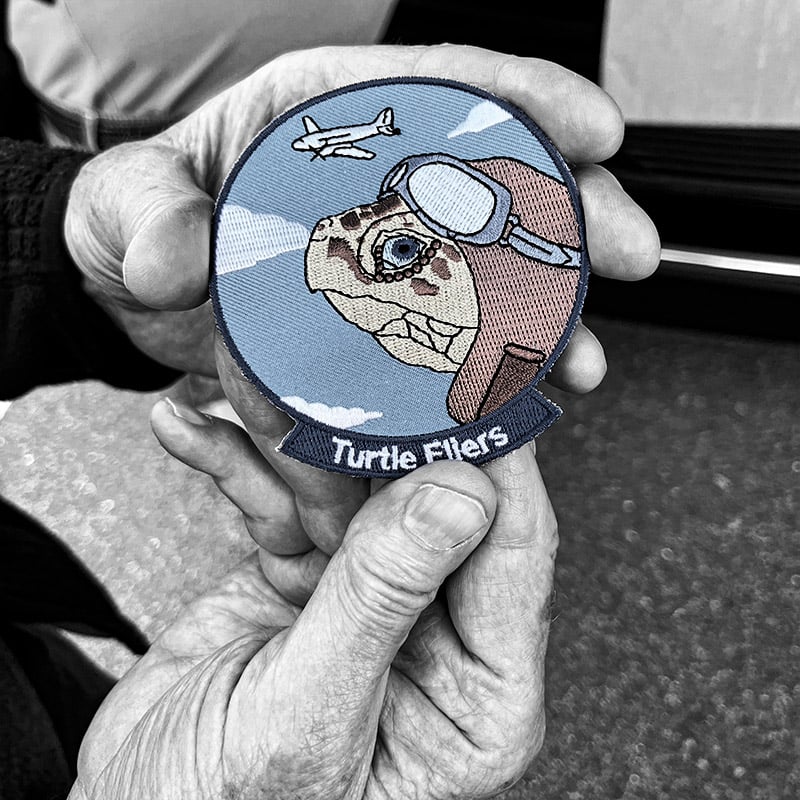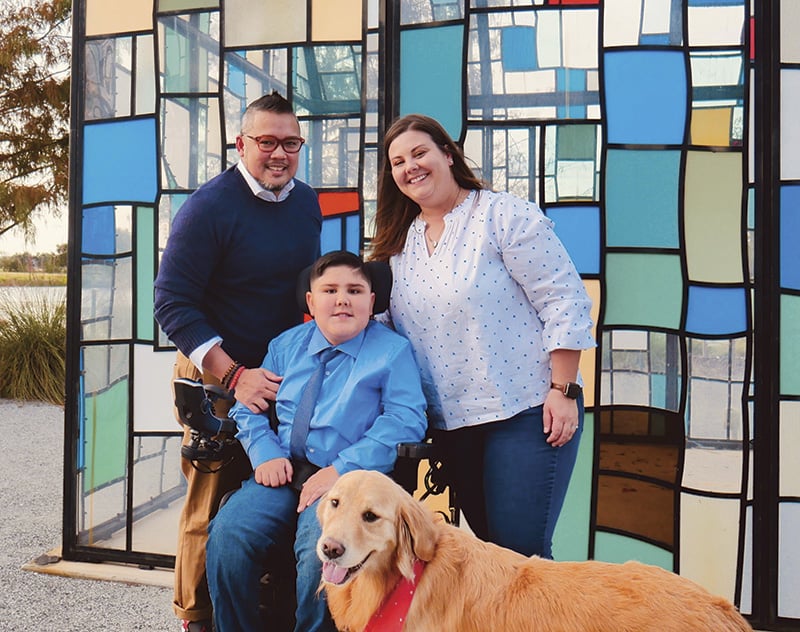Pet Guide 2023: Health Care You Can Love
Pets offer more than companionship. They offer proven health benefits to their owners.
Photos by Roberto Gonzalez
Do you have high blood pressure? Are you struggling with weight gain? Are you anxious or depressed? Have your senior years crept up on you? It’s possible the best prescription for what ails may not only restore your health but also restore your joy: a pet.
Orlando resident Diane Ryan, a shut-in since 2017, can’t imagine life without her two cats, Rocky and Holly. “They really help me a lot mentally and emotionally,” she says. Research shows pet owners experience benefits on multiple levels.
A 2013 study by the American Heart Association showed pet ownership increased people’s activity levels, lowered their blood pressure and improved their response to stress. A 2009 study published by the Journal of Vascular and Interventional Neurology linked pet ownership with a higher survival rate among patients one year after a serious cardiac event.
The benefits keep compounding. Studies by the Human Animal Bond Research Institute (HABRI) in Washington, D.C., have shown pets improve our mental, physical and emotional health. They also promote healthy aging and improve wellness in the workplace.
The results are measurable—as in billions of dollars. HABRI recently worked with a team of economists to determine the annual savings in healthcare costs nationwide as the result of pet ownership.
“We were able to calculate a $22.7 billion savings to the U.S. healthcare system,” says HABRI President Steven Feldman. Pet owners—primarily dog walkers—saved the healthcare system $4.5 billion in obesity treatments. “If you walk your dog five or more times a week, you’re statistically less likely to be obese.”
Dr. Caitrine Hellenga, medical director of Winter Park Veterinary Hospital, sees how pets benefit the health of their owners in her daily practice. “It seems that clients who have pets tend to exercise more and anecdotally often seem to recover better from illness,” she observes.
A Life Made Better with Love
That proved true for Orlando resident Gregg Girard, who credits his 15-year-old dog Kacey with saving his life after he suffered a debilitating stroke nine years ago that left him paralyzed on his left side.
“The diagnosis was very grim. I would never leave a wheelchair,” Girard says.
Unable to walk, Girard left Kacey with his sister for a year after his stroke. When Kacey finally rejoined him, “she immediately knew something was not right with Dad. She did not leave my side,” he recalls.
Kacey became his coach, sitting a few feet away from him and herding others away as Girard would practice walking across his living room. She would reward him for his efforts with lots of kisses.
Girard eventually regained his ability to walk and care for himself. He credits his bond with Kacey for helping him persevere through his recovery. “You go through so much psychological damage after a stroke as your brain is recovering. There’s a deep amount of depression. I don’t think I would have made it without her,” he says.
Just as Kacey helped Girard through his recovery, pets provided mental and emotional support as people faced months of isolation during the COVID pandemic, according to Hellenga.
“Being faced with such unimaginable challenges, with a trusted and beloved pet at home to diffuse stress and provide companionship when the other option was isolation, was invaluable health-wise for people,” she says. “There is a reason pet ownership boomed during COVID. People needed that support.”
According to Feldman, the human-animal bond is symbiotic, the result of thousands of years of evolution. “We’ve had an existence where they’ve helped us survive, and we’ve helped them survive,” he says. “They’ve actually evolved to be more like our children. The love hormone, oxytocin, goes up when we’re interacting with our pets. The same hormone goes up when we’re interacting with our kids.”
Mutual Support Pays Off in Dividends
Just as human children tend to their aging parents, our fur babies can provide support in their owners’ later years. Research by HABRI shows pet ownership promotes healthy aging and increased mobility. Benefits are found in mental health, including memory disorders, as well as physical activity levels, cardiovascular health, pain management, quality of life, and even cancer detection.
“Caring for pets is important for healthy aging and provides a clear reason for a person to continue to take care of themselves, especially as the world often begins to shrink,” Hellenga says. Pets also provide mental and emotional support as owners grieve the passing of their loved ones, she adds.
The love must be reciprocated for the human-animal bond to thrive, experts say. Animals require good nutrition, adequate exercise, excellent veterinary care and lots of love.
“The more we put into the relationship on our end, the better it is for us in terms of the benefits we get to our mental and physical health,” Feldman says. “I always like to say good health is on both ends of the leash.”
Finding the Right-Fit Pet
If you’re thinking about getting a companion pet to improve your quality of life and overall wellbeing, your options go beyond dogs and cats. Studies show any species can provide benefits, so evaluate what’s best for you and your household.
“You need to find the pet that has the right energy level for you,” Hellenga suggests. “Getting a pet with more energy than you can create problems. You need to pick a pet with the same or lower energy than you.”
Determine how the pet will fit into your life, she adds. A Border Collie is a good fit for someone who wants to be active in agility and training competitions, whereas a cat or lapdog is more suited to a homebody. Also keep in mind “you need to look at your emotional needs and match the type of pet to the type of caretaking,” Hellenga recommends.
Whatever pet you choose will not only promote your health but also enhance your relationships. “When other people are around, they actually help connect us. Even inside the home, they provide a common sense of purpose,” Feldman says, adding, “It’s hard to have a conflict when there’s a wagging tail or a cat is rubbing on your leg.”
“I always say it’s the individual, it’s the family, and it’s the whole community that benefits from the presence of pets in our lives,” Feldman says.






